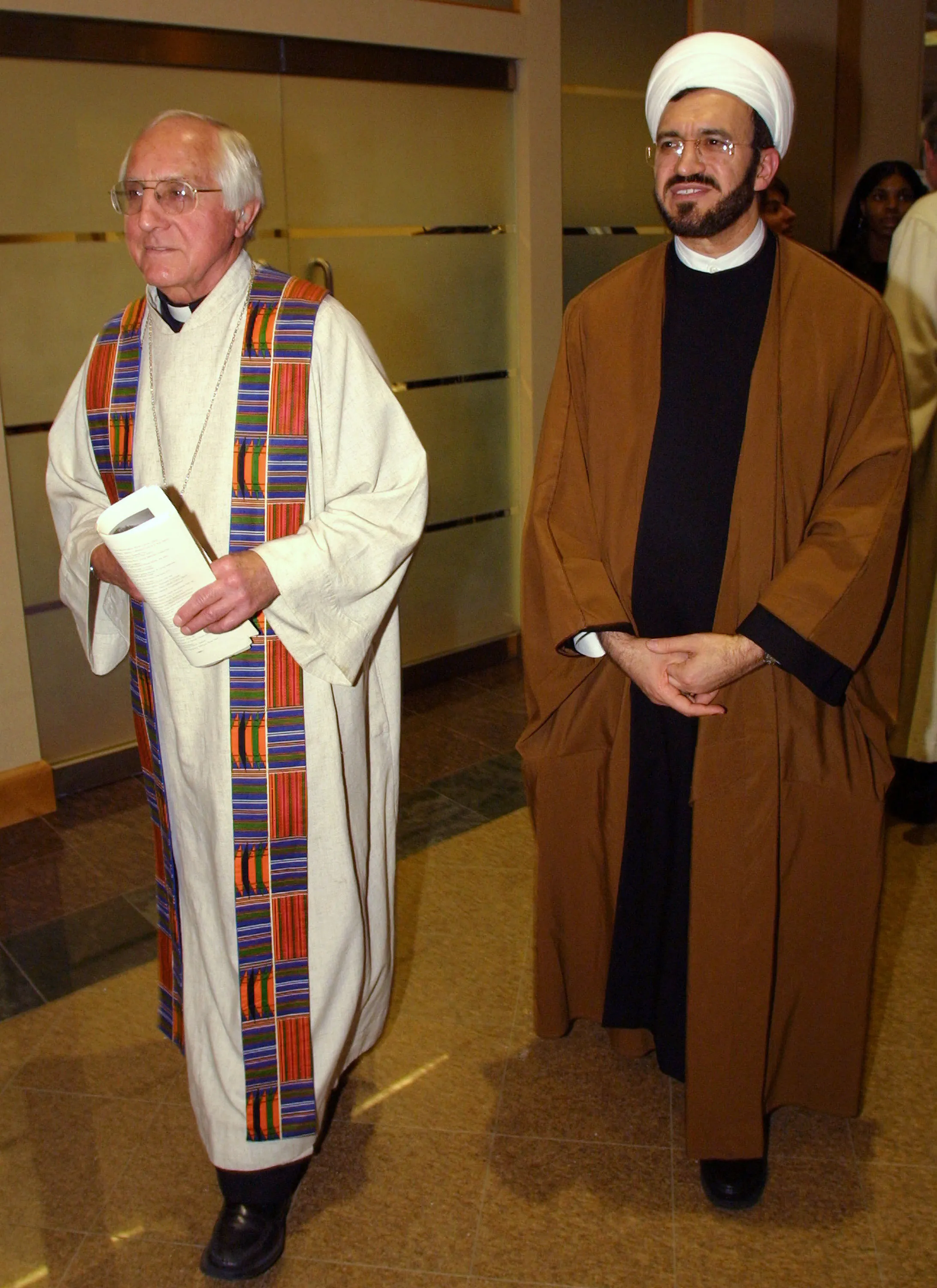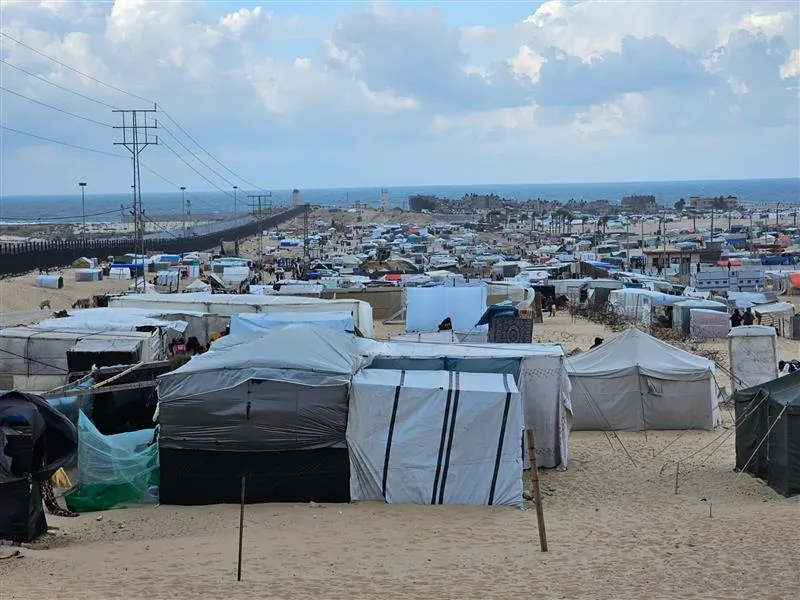 Former Auxiliary Bishop Thomas Gumbleton (right) meets with legislators in the Netherlands in 1983. / Credit: Rob Croes for Anefo|Wikimedia|National Archives, Netherlands
Former Auxiliary Bishop Thomas Gumbleton (right) meets with legislators in the Netherlands in 1983. / Credit: Rob Croes for Anefo|Wikimedia|National Archives, Netherlands
CNA Staff, Apr 5, 2024 / 15:30 pm (CNA).
Thomas Gumbleton, a vocal peace activist and critic of war and nuclear weapons who served as an auxiliary bishop for the Archdiocese of Detroit, died on Thursday at age 94.
Born in Detroit in 1930, Gumbleton studied at both St. John's Provincial Seminary in Plymouth, Michigan, and the Pontifical Lateran University in Rome, the latter at which he earned a doctorate in canon law. He was ordained in the Archdiocese of Detroit in 1956 and made an auxiliary bishop there in 1968, becoming the youngest U.S. bishop at the time.
His long tenure as a bishop was marked by several controversies, including his arrest in 1987 in connection with a protest at a Nevada nuclear testing site as well as another arrest at the White House in 1999 while protesting the NATO bombing of Yugoslavia.
The bishop was arrested a third time in 2003 during a protest against the U.S. invasion of Iraq that took place in Lafayette Square across from the White House.
In January 2006, Gumbleton testified before the Ohio General Assembly in favor of a bill expanding the statute of limitations for sexual abuse victims to file lawsuits against their alleged abusers.

In his statement, he told the assembly that he "[did] not speak in any official capacity on behalf of the Archdiocese of Detroit, nor any regional nor national group of bishops," though he said he testified "as a priest of the Catholic Church for almost 50 years and a bishop for almost 38 years." In that testimony, he also said he had been inappropriately touched by a priest while a teenager.
Gumbleton submitted his resignation to then-Pope Benedict XVI less than a month later, in early February. He later claimed that Church leaders had responded negatively to his testimony and that the Vatican had demanded he resign from his role as bishop and as pastor of St. Leo Parish in Detroit.
The prelate was already on the cusp of resignation at the time; he had turned 75 the year before, the age at which bishops are generally required to submit their resignation. Gumbleton himself had requested that he be allowed to continue serving in his role, but the Congregation for Bishops (now the Dicastery for Bishops) had refused.
Gumbleton later said he had corresponded with the congregation for nearly a year on the matter before ultimately submitting his resignation shortly after his testimony at the Ohio Statehouse.
Controversy followed the bishop into his retirement. A supporter of women's ordination to the priesthood, Gumbleton was also an advocate for changes to the Church's teaching about homosexuality. In 2013 he publicly contradicted Detroit Archbishop Allen Vigneron and urged Catholic supporters of same-sex marriage: "Don't stop going to Communion."
Several years before, then-Marquette, Michigan, Bishop Alexander Sample requested that Gumbleton not attend a talk in the former's diocese, citing his stance on homosexuality and women's ordination. "In order that no one becomes confused, everyone under my pastoral care must receive clear teaching on these important doctrines," Sample said at the time.
In announcing his death this week, Vigneron described Gumbleton as "a faithful son of the Archdiocese of Detroit, loved and respected by his brother priests and the laity for his integrity and devotion to the people he served."
"We in the archdiocese join his family and friends in praying for the repose of his soul and asking God to grant him the reward of his labors," the archbishop said.












